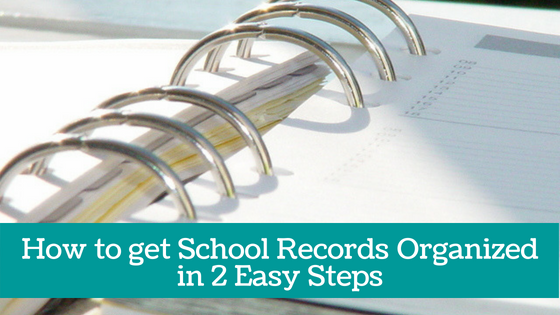Are you already thinking about high school for your college-bound middle-schooler?
It’s important to start thinking about high school options at least a few years ahead, especially if your teen’s middle school ends at the 8th grade.
What if you don’t have 1-2 years to plan for a school change?
Understanding firsthand just how difficult it can be to choose the right high school for your child is what inspired this post.
Before I move on to tips for choosing the right high school for your child, let’s discuss why you might be considering switching your child’s high school in the first place.
Reasons for changing high schools.
Parents consider changing their teen’s high school for a variety of reasons, including:
- Disapproval of curriculum at current school
- Over-testing
- Relocation
- Marital separation or divorce
- Bad social environment for teen
- Safety concerns
- Current school closing
Personally, I’ve had to choose different schools for my children for curriculum/testing, safety concerns, social reasons, and relocations. Each time has been different because each grade level is different. Also, my children are quite different from each other.
Regardless of the time parents have to make all the necessary decisions about high school, this one decision (which school your teen attends) is important enough that parents must know their options.
Important choices for parents to make.
These are some of the critical decisions parents will have to make when they’re choosing the right high school for their child:
- Independent (i.e. private) school—day or boarding
- Parochial
- Public school district, including charter
- Homeschool
Again, given the different personalities of my own children, they have attended day, boarding, and public schools. Plus, I homeschooled… yikes!
Each time my children changed schools, I followed a basic process which included:
- School visits
- Online research
- Personal networking
- Considering social dynamics
These four aspects are very important when choosing the right high school for your child.
Here’s how each step of this process can help you choose the right high school for your teen.

Conduct high school visits for and with your teen.
Changing schools can be just as anxiety-ridden for the child as for the parent.
If I’m considering a new school, I generally visit for the first time without my child. This gives me an opportunity to speak with the principal, teachers, and staff one-on-one.
I also observe the condition of the school and notice how students are responding.
When I meet with teachers, I not only ask them about their grade, but their perception of other grade cohorts at the school.
The postings on the wall can say a lot: If there are a lot of signs with directions about behavior, then it may indicate that a school has safety/discipline issues.
I don’t mind waiting in the office; I can see and hear about typical issues there. Sometimes, the office staff isn’t discreet, and I learn a lot from overhearing those interactions.
The other thing I notice is the smells in the school. (It may sound strange but it’s still part of the learning environment.)
As best as possible, I’m trying to get a sense for what the school day would be like for my teen.
I strongly advise parents against the first day of school being the first day that a child sees a new school.
A good opportunity for any child to see a new school is a “shadow” day.
Shadow days are good for any grade level. It allows the child to have the face-to-face experience of visiting a class and getting a better feel for the environment—I only took my child to visit a school if it was a serious consideration.
The campus visits for parents and children is a crucial aspect of the new school search. (Your campus visit is in addition to any open houses held by the school.)
While we’re on the topic, you’ll want to visit this post for tips on surviving college campus visits with your teen.
Save time with online searches.
There is so much information online when it comes to choosing the right high school that it can be hard to know where to start and how to manage.
I love discovering new information but when it comes to searching online, I can waste hours (that I don’t have) reading information on random sites that overwhelm, rather than help.
Here are some online resources that I’ve used to inform my search, which may help you save time:
- New school’s website and individual teacher pages.
- Your state education agency—this is a great place to bookmark and visit on a regular basis each academic year.
- National Association of Independent Schools
- The Association of Boarding Schools
- Homeschool Legal Defense Association
- Great Schools
- Education Week—Worth bookmarking and reading regularly, anyway!
- Social networking pages of potential school or associations.
- Local parent advocacy networks/agencies.
Bonus tip: Even if you’re not considering a particular school, if the school has a strong reputation, you can still poke around on their site and see what they’re offering. This may trigger some ideas for what questions to ask and how to evaluate the options you’re considering.
Network with other parents.
As always, it helps to talk with other parents in and outside your network about a new school you’re considering.
I’ve found that I can get more information over a cup of coffee than anywhere else.
In each conversation, I make sure to ask these five key questions:
- Why did your family choose this school?
- What keeps your family at this school?
- How would you describe the parent community at this school?
- What’s been your involvement at this school?
- What do you wish you had known before your teen enrolled?
(If there’s any juicy gossip, I want to hear that too, although I may not ask directly!)
In fact, even when my children changed to a new grade, I would talk with parents in the next grade level to get a sense of their experience. Often, the next grade/teacher can be a whole new experience and adjustment.
Consider social dynamics.
Another factor to consider when you’re choosing the right high school for your child is the social dynamics at a given school.
As my children entered high school, it was more difficult to consider changing schools because of all the social dynamics that play an even bigger role in their experience. That’s why this step deserves special attention.
I’ll admit that I was particularly concerned about the social aspects of high school for my daughter. (Every mom of a daughter can probably identify with this.)
The teen years can be particularly challenging for girls, and moms must be sensitive to the social environment of high school, which can influence their identity formation and self-confidence.
If you follow these four steps, they will help you choose the right high school for your child, to set them up for future success along with a better experience in the meantime.
If you’ve researched a new school for your child, what was your approach? Which resources did you use? Please leave a comment and share with other parent readers.
If you’re interested in one-on-one support and other resources to help you or your child get into (or pay) for college, click here.
If you’d like to learn more about preparing middle school students for college, you’ll want to have a look at these articles too:
7 Ways to Support Your Child During the College Application Process
College Scholarships for Middle School Students
Preparing for College in the Ninth Grade
This article was originally published on April 17, 2018, and has been updated.







